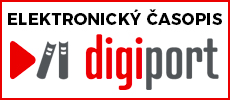Patient-Centered Nursing for Tomorrow’s Challenges
Introduction
Nursing today is no longer limited to delivering basic care; it has become a field deeply connected to innovation, leadership, and collaboration. Patient-centered nursing plays a central role in improving healthcare systems, ensuring that patients remain at the heart of decision-making processes. In academic pathways, particularly through Capella University’s advanced courses, learners engage in assessments that prepare them to address tomorrow’s healthcare challenges. These assessments help shape nurses into leaders who can design patient-focused strategies and foster resilience within teams.
The NURS FPX 8008 Assessment 1 value of these assessments lies in equipping nursing professionals with tools to handle real-world complexities. For instance, emphasizes analyzing person-centered care, laying the groundwork for building care plans that are responsive and adaptable to patient needs. Such learning opportunities ensure that nursing education is not just theoretical but closely tied to practical patient outcomes.
Building Strong Foundations in Patient-Centered Care
A healthcare system thrives when its foundation prioritizes the person receiving care. Patient-centered nursing focuses on understanding individual patient preferences, values, and cultural contexts. This holistic approach leads to more personalized care strategies, improved communication, and stronger patient satisfaction. By developing these skills early, nurses can contribute meaningfully to long-term systemic improvements.
Beyond foundational skills, advanced coursework ensures that professionals understand how patient care interacts with policies, teamwork, and leadership. This creates a more complete picture of how to deliver care that is innovative, sustainable, and sensitive to diverse patient populations.
Collaborative Practices in Nursing Education
One of the most important aspects of modern nursing is collaboration. Nurses rarely work in isolation; they are part of interdisciplinary teams that include physicians, specialists, therapists, and administrators. Effective collaboration demands both strong communication skills and the ability to navigate complex team dynamics.
NURS FPX 8008 Assessment 2 highlights this dimension by emphasizing how nurses can support collaborative care. By participating in exercises that mirror real-world teamwork, learners practice integrating patient perspectives into group decision-making. This helps future nurses become strong advocates for patients while simultaneously strengthening team performance.
Expanding Perspectives Through Systems Thinking
To solve complex healthcare challenges, professionals must learn to view situations from a systems perspective. Systems thinking allows nurses to see beyond immediate problems, recognizing patterns and underlying causes within healthcare delivery. By understanding how each part of a system affects the whole, nurses can make better-informed decisions that enhance patient outcomes.
These lessons prove especially valuable in dynamic healthcare environments where unexpected challenges often arise. Systems thinking trains professionals to be adaptive, resourceful, and solution-driven. Such skills ensure that patient-centered care can remain strong even during times of crisis or rapid change.
Leadership as a Core Nursing Competency
Leadership is no longer optional in nursing; it is a central skill that shapes patient outcomes and team effectiveness. Nurses who demonstrate leadership skills inspire their teams, drive innovation, and ensure that patient values guide every aspect of care. Whether through small daily decisions or larger organizational initiatives, leadership helps bridge the gap between policies and practice.
NURS FPX 8008 Assessment 3 focuses directly on helping learners develop leadership that supports patient-centered approaches. By practicing leadership in a controlled academic environment, nurses are better prepared to influence real-world care settings where strong direction can mean the difference between fragmented care and integrated excellence.
Policies That Empower Nursing Teams
Policies form the backbone of any healthcare system. They create guidelines for ethical practice, set standards of care, and provide structure for collaborative efforts. Nurses who understand and engage with policy development can become advocates not just for individual patients but also for entire communities. This engagement ensures that patient-centered values are upheld at every level.
Reinforces the significance of policies in shaping collaborative care practices. By learning how to analyze and apply policies, nurses can advocate effectively for reforms that place patients first. Such advocacy transforms nursing from a practice of following orders to one of leading change across systems.
The Lasting Value of Patient-Centered Nursing
Ultimately, the strength of modern healthcare lies in its ability to center care on patients while leveraging teamwork, leadership, NURS FPX 8008 Assessment 4 ,and policy understanding. Patient-centered nursing is not just a philosophy but a practical framework that improves outcomes across diverse care settings. Academic training through carefully designed assessments equips nurses with the knowledge and confidence to navigate these challenges.
The journey through NURS FPX 8008 demonstrates how deeply interconnected nursing competencies are. Collaboration, systems thinking, leadership, and policy engagement all serve one purpose: ensuring that patients receive the best possible care. By preparing nurses to meet tomorrow’s challenges, patient-centered nursing continues to redefine the future of healthcare.



